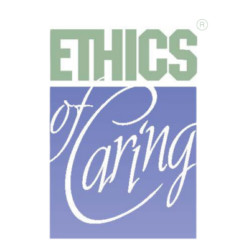“As moral agents, nurses are advocates for their patients, and are aware of and identify issues that are difficult in practice. They usually know what is right or best for patients and their families and colleagues.”

Dr. Linda Olson, a nurse educator, and consultant with expertise in ethics is internationally recognized for her work on tools to measure moral distress and hospital ethical climate. On Friday, March 18th Dr. Olson will will present with Dr. Epstein the plenary entitled “Where You Work Determines How You Work: Ethical Climate and its Influence on Healthcare Provider Life and Practice.”
Click to Share this YEAR Spotlight!
Q:
The theme of this year’s National Nursing Ethics Conference is Moral Agents in Action. In what ways does this theme resonate with you?
As moral agents, nurses are advocates for their patients, and are aware of and identify issues that are difficult in practice. They usually know what is right or best for patients and their families and colleagues. The first step is to help them increase their awareness of what constitutes an ethical issue. The conference provides opportunities for self-reflection which is important for nurses’ ability to demonstrate empathy and maintain integrity.
– Linda Olson
Q:
Your session will consider concepts of mattering, moral distress, burnout, and the linkages of those with ethical climate. What part of this content are you most excited about sharing with participants who may struggle with feeling like they can exert moral agency in their work environments?
Nurses want to feel they are listened to and their opinions are valued. Leaders have a role in creating and maintaining an ethical practice environment, where clinical nurses can raise issues and give their views without fear of reprisals. Those involved in ethical issues need to feel free to speak out and to be aware of resources available to help them. Clinical nurses need to be encouraged to raise an issue and be heard. The ability to express your opinion is an element of risk-taking. Nurses have to feel supported in taking a risk—that in turn generates trust in the system and in each other.
– Linda Olson
Q:
We know from the Code of Ethics that nurses carry responsibility for the development of an ethical work environment. That seems like a big job, how does ethical climate relate to individual nurses?
As a nursing professor, I spent time in different hospitals with students, and observed that nurses were more or less willing to voice their concerns. It seemed related to work culture. That led to realizing that the context of the workplace environment influences the way we identify and respond to ethical issues, and to my research on organizational culture, climate, and ethics. I am convinced that creating healthy work environments is key to quality patient care outcomes and good nurse outcomes with regard to nurse satisfaction and retention.
– Linda Olson
Q:
How would you advise nurses who have an interest in ethics?
It is so important to help nurses and others develop an understanding of how the workplace environment and leadership influence their ethical practice. Nurses need to identify areas they can focus on in order to improve it. Nurses can take a look at the organizational culture where they may apply to work in or are already working in to see whether the elements that constitute a good organizational culture and climate are in place. A component of a positive ethical climate is the ability to express opinions and talk with each other about concerns. It is also in the way they are supported and recognized and valued for their practice. I would advise nurses to take advantage of opportunities to learn about ethics and to be involved in activities where difficult and ethical issues are discussed, to be aware of their values, and to use the ANA Code of Ethics as a valuable resource.
